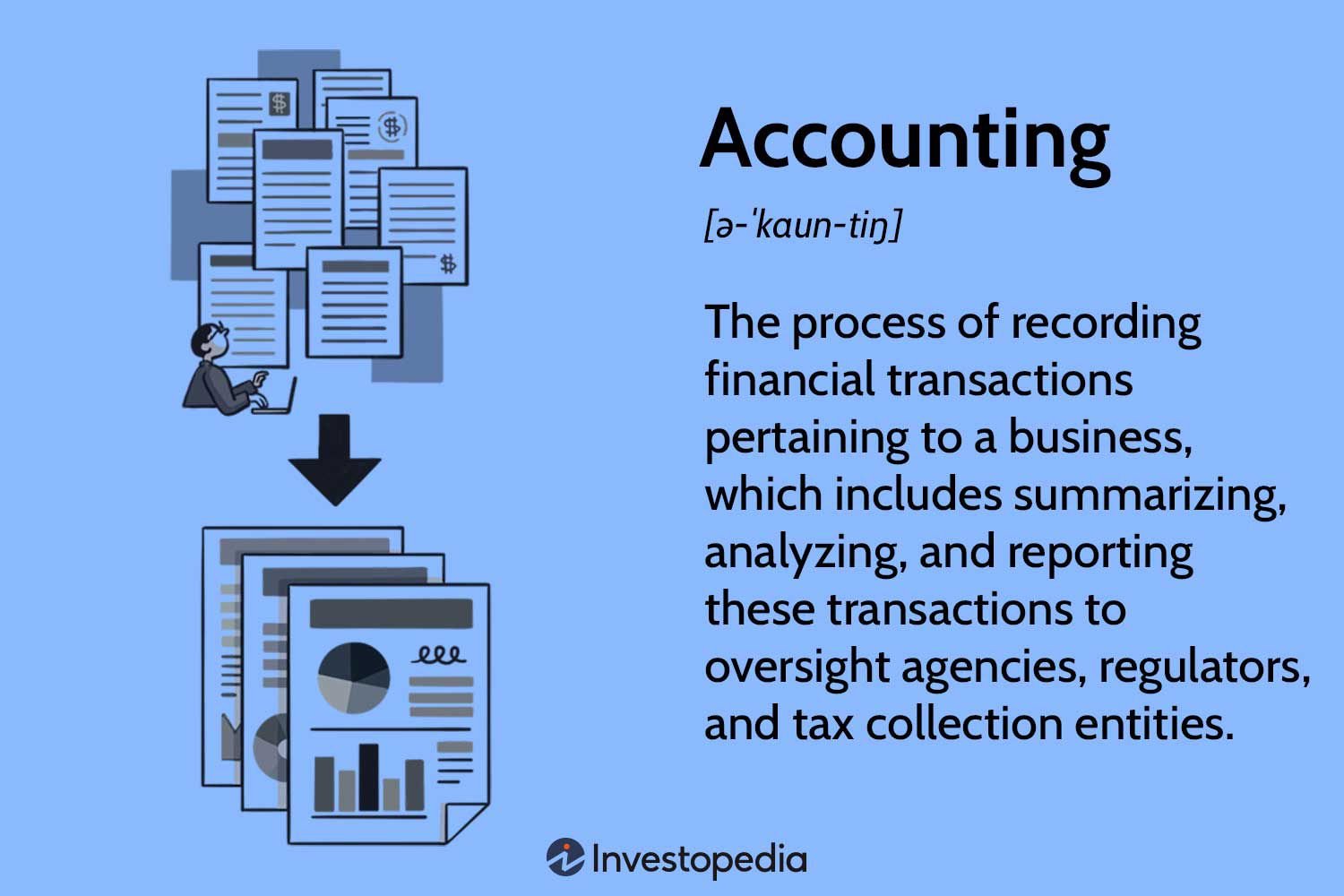Curious about the critical role a bookkeeper plays in small businesses? Look no further! Understanding the role of a bookkeeper in small businesses is essential for ensuring smooth financial operations. With their expertise in managing and organizing financial records, bookkeepers are the unsung heroes behind the scenes. They are adept at tracking income and expenses, reconciling bank accounts, and preparing financial statements. By maintaining accurate and up-to-date records, bookkeepers provide invaluable insights that enable businesses to make informed decisions and stay on top of their financial health. Let’s dive deeper into the world of bookkeeping and unravel its significance for small businesses.
Understanding the Role of a Bookkeeper in Small Businesses
Introduction
Running a small business can be a challenging endeavor, with owners often juggling multiple responsibilities to keep their operations running smoothly. One crucial aspect of managing a small business is proper financial management, which includes effective bookkeeping. In this article, we will explore the role of a bookkeeper in small businesses and how they contribute to the overall financial health and success of an organization.
What Is Bookkeeping?
Bookkeeping is the systematic recording, organizing, and managing of financial transactions within a business. It involves tracking income and expenses, maintaining accurate records, reconciling accounts, and ensuring compliance with relevant laws and regulations. Bookkeepers use various tools and software to streamline their work and provide accurate financial information to business owners and stakeholders, helping them make informed decisions.
The Importance of Bookkeeping for Small Businesses
Effective bookkeeping is essential for small businesses due to the following reasons:
1. Financial Visibility: Accurate bookkeeping provides business owners with a clear picture of their financial situation. It allows them to track income and expenses, identify trends, and make informed financial decisions.
2. Tax Compliance: Proper bookkeeping ensures that businesses stay compliant with tax laws and regulations. By maintaining accurate records, small businesses can minimize the risk of errors, avoid penalties, and make the tax filing process smoother.
3. Business Planning: Bookkeeping helps small business owners create realistic budgets, forecast future expenses, and set appropriate financial goals. It enables better financial planning and facilitates growth by identifying areas that require improvement or investment.
The Role of a Bookkeeper in Small Businesses
A bookkeeper plays a critical role in the financial management of a small business. Their responsibilities include:
1. Recording Financial Transactions: Bookkeepers record all financial transactions, including sales, purchases, payments, and receipts. They ensure that each transaction is accurately classified and entered into the appropriate accounts.
2. Maintaining General Ledger: The general ledger is a central repository that contains all the accounts of a business. Bookkeepers update and maintain the general ledger to ensure that it reflects the current financial position of the business accurately.
3. Reconciling Accounts: Bookkeepers reconcile bank statements, credit card statements, and other financial records to ensure that all transactions are properly recorded and accounted for. This process helps identify any discrepancies or errors that need to be addressed.
4. Generating Financial Reports: Bookkeepers generate financial reports, such as profit and loss statements, balance sheets, and cash flow statements, based on the data they have recorded. These reports provide valuable insights into the financial health of the business.
5. Managing Accounts Payable and Receivable: Bookkeepers take care of accounts payable and accounts receivable. They track and process invoices, ensure bills are paid on time, and monitor customer payments. This ensures that the business maintains healthy cash flow.
6. Assisting with Payroll: Bookkeepers often handle payroll tasks, including calculating employee wages, processing tax withholdings, and preparing payroll reports. They ensure that employees are paid accurately and that all payroll-related taxes and obligations are met.
7. Ensuring Compliance: Bookkeepers stay updated on relevant laws and regulations to ensure that the business remains compliant. They help with the preparation of financial records for audits and work closely with accountants during tax preparation.
The Skills and Qualities of a Good Bookkeeper
To effectively fulfill their role, a bookkeeper should possess the following skills and qualities:
1. Attention to Detail: Bookkeepers need to be meticulous and detail-oriented to ensure accurate record-keeping and financial reporting.
2. Organizational Skills: Managing financial records and transactions requires excellent organizational skills.
3. Analytical Thinking: Bookkeepers should have the ability to analyze financial data and identify trends or discrepancies.
4. Knowledge of Accounting Software: Proficiency in accounting software is essential for efficient bookkeeping.
5. Communication Skills: Bookkeepers often work closely with business owners, accountants, and other stakeholders, so effective communication is crucial.
6. Ethics and Integrity: Bookkeepers handle sensitive financial information, so they must demonstrate high ethical standards and maintain confidentiality.
The Benefits of Hiring a Bookkeeper
While some small business owners may attempt to handle bookkeeping tasks themselves, hiring a professional bookkeeper offers numerous benefits, including:
1. Time Savings: Outsourcing bookkeeping allows business owners to focus on core tasks, such as growing the business and serving customers, instead of getting caught up in administrative work.
2. Accuracy and Avoidance of Errors: A skilled bookkeeper has the expertise to maintain accurate records, reducing the risk of errors that could have costly consequences for the business.
3. Financial Expertise: Bookkeepers possess knowledge of accounting principles and best practices, ensuring that the financial aspect of the business is handled professionally.
4. Enhanced Financial Reporting: A bookkeeper can generate comprehensive financial reports that provide useful insights for strategic decision-making.
5. Compliance and Peace of Mind: With a bookkeeper onboard, business owners can have confidence that their financial records are accurate, up to date, and compliant with regulations.
In small businesses, bookkeeping is an essential function that contributes to the overall financial health and success of the organization. A bookkeeper’s role encompasses various responsibilities, including record-keeping, financial reporting, and compliance management. By understanding the significance of proper bookkeeping and considering the benefits of hiring a bookkeeper, small business owners can ensure they have a solid foundation for financial management and make informed business decisions.
The BOOKKEEPING BASICS for BEGINNERS
Frequently Asked Questions
Frequently Asked Questions (FAQs)
What is the role of a bookkeeper in small businesses?
A bookkeeper plays a crucial role in small businesses by managing the financial transactions and records. They are responsible for tasks such as maintaining accurate ledgers, reconciling bank statements, processing invoices, and ensuring compliance with tax and accounting regulations.
Why is hiring a bookkeeper important for small businesses?
Hiring a bookkeeper is important for small businesses as it allows entrepreneurs to focus on core business operations while ensuring that their financial records are accurate and up to date. A bookkeeper can help identify cost-saving opportunities, provide valuable insights, and ensure compliance with financial reporting requirements.
What qualifications or skills should a bookkeeper have?
A bookkeeper should possess skills such as proficiency in accounting software, attention to detail, strong organizational skills, and knowledge of basic accounting principles. It is also beneficial for a bookkeeper to have relevant certifications like Certified Bookkeeper (CB) or Certified Public Bookkeeper (CPB).
How can a bookkeeper help with cash flow management?
A bookkeeper can help with cash flow management by keeping track of incoming and outgoing funds, monitoring accounts receivable and accounts payable, and preparing cash flow statements. By maintaining a clear picture of the business’s financial health, a bookkeeper can assist in making informed decisions regarding cash flow management.
What are the advantages of outsourcing bookkeeping services for small businesses?
Outsourcing bookkeeping services for small businesses offers several advantages. It allows business owners to access professional expertise without the need for in-house staff, reduces overhead costs, ensures accurate and timely financial reporting, and provides flexibility in scaling bookkeeping services as the business grows.
Can a bookkeeper help with tax preparation and compliance?
Yes, a bookkeeper can provide valuable assistance with tax preparation and compliance. They can ensure that all financial records are accurately maintained, organize necessary documentation for tax filing, and collaborate with accountants to maximize tax benefits and minimize errors.
How often should a small business consult with a bookkeeper?
The frequency of consulting with a bookkeeper depends on the complexity and size of the business. However, it is recommended to consult with a bookkeeper on a regular basis, such as monthly or quarterly, to keep financial records up to date, monitor cash flow, and address any potential issues in a timely manner.
What are some common mistakes that small businesses make in bookkeeping?
Some common mistakes small businesses make in bookkeeping include mixing personal and business finances, not reconciling bank statements regularly, failing to track expenses accurately, overlooking proper documentation, and not keeping backup copies of financial records. A skilled bookkeeper can help businesses avoid these errors and maintain clean and accurate financial records.
Final Thoughts
Understanding the role of a bookkeeper in small businesses is crucial for their financial success. Bookkeepers play a key role in accurately recording, organizing, and reconciling financial transactions. They ensure that expenses are properly categorized, invoices are paid on time, and financial statements are prepared in a timely manner. With their expertise, bookkeepers provide valuable insights on cash flow, profitability, and overall financial health. They help small business owners make informed decisions and stay compliant with tax regulations. By entrusting their financial management to a skilled bookkeeper, small businesses can focus on growth and achieving their goals. Understanding the role of a bookkeeper in small businesses is an essential step in effectively managing finances and ensuring long-term success.



